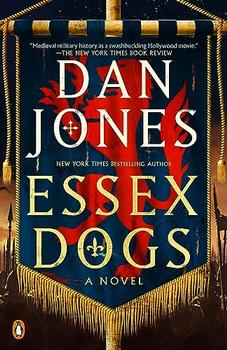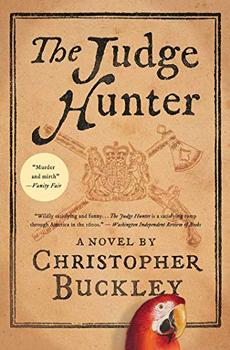Summary | Excerpt | Reviews | Beyond the book | Read-Alikes | Genres & Themes | Author Bio

The Abbot's Tale purports to be a re-discovered manuscript written by a real historical figure, Dunstan, a man who rose from being the Abbot of Glastonbury to become the Archbishop of Canterbury (the most senior figure in the Church in England) and who, after his death, was canonized as a saint. Dunstan, now an old man, is writing a confessional biography of his life, the highs and lows of his career in the Church and his relationships with successive kings of 10th century Britain.
The man who tells this story, however, is anything but saintly. Dunstan takes the reader back to his boyhood arrival at the Glastonbury home (see Beyond the Book) of Benedictine monks – "an oddly relaxed place then, with a few married and unmarried women tending the brothers, and half the men not ordained or even formal Benedictines." Aged 14 in 934 AD, Dunstan is left there along with his brother Wulfric by their father to be educated and perhaps take orders. Dunstan at once stands out as different. Despite being subject to occasional and alarming fits, he has the mind of an engineer. He also has a great dislike of authority, a natural gift for creating enemies and an appetite for vengeance. Throughout his youth and the years that follow, Dunstan's talents and failings will bring him great wealth and success, but many of his achievements come at a price – for his family, for himself, and for anyone who crosses him.
The Abbot's Tale is a sweeping historical epic full of valiant kings, cathedral building, Viking invasions and battle scenes. It paints a vivid multi-sensory picture of Britain almost 1100 years ago, and Dunstan, for all his flaws, is something of a Leonardo da Vinci – a man with immense skills, an innovator as excited to design a letter-writing aid for his brother who has only one arm as he is to redesign cathedral windows to support the weight of a great stone edifice. He is a witty narrator with an irreverent sense of humor and a sharp tongue, particularly for a man of the Church. For example, he recalls the man who was Abbot of Glastonbury when Dunstan was a boy with great dislike, saying he would like to "strangle that old bastard and put him down the privy." In the majority of his relationships he is calculating, but he does make mistakes and pays for them. Violence – committed against Dunstan, as well as carried out against his enemies – is a constant theme, as it was during that period. During his lifetime, Dunstan is beaten, exiled and nearly killed, yet he lives, thrives and sometimes barely survives through the reigns of seven kings.
The book suffers at points from the limitations of a first-person narrative point of view. Dunstan's voice, although enjoyable, is that of an old man looking to the past and this keeps many of the other characters at a distance. At points he admits to reporting events he did not even witness. He also opens his tale with a confessional prologue that promises high drama — "I have murdered innocents...I have loved a woman and she ruined me. I have loved a king and yet I ruined him..." — but it is not clear that these bold statements are really shown to be true in the story that follows.
What the novel lacks in dramatic tension, however, it makes up for in its epic sweep and immersion into a fully realized vision of the past. From the smelting of coins to the crowning of kings and hunting for stag in the wilds of the countryside, The Abbot's Tale captures the imagination and engages the senses.
![]() This review was originally published in The BookBrowse Review in June 2018, and has been updated for the
October 2019 edition.
Click here to go to this issue.
This review was originally published in The BookBrowse Review in June 2018, and has been updated for the
October 2019 edition.
Click here to go to this issue.

If you liked The Abbot's Tale, try these:

by Dan Jones
Published 2023
The New York Times bestselling historian makes his historical fiction debut with an explosive novel set during the Hundred Years' War.

by Christopher Buckley
Published 2019
In the latest comic novel from Christopher Buckley, a hapless Englishman embarks on a dangerous mission to the New World in pursuit of two judges who helped murder a king.
Your guide toexceptional books
BookBrowse seeks out and recommends the best in contemporary fiction and nonfiction—books that not only engage and entertain but also deepen our understanding of ourselves and the world around us.